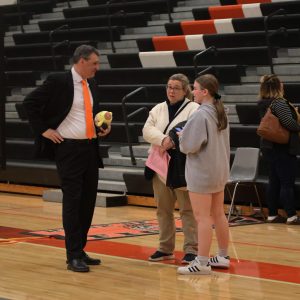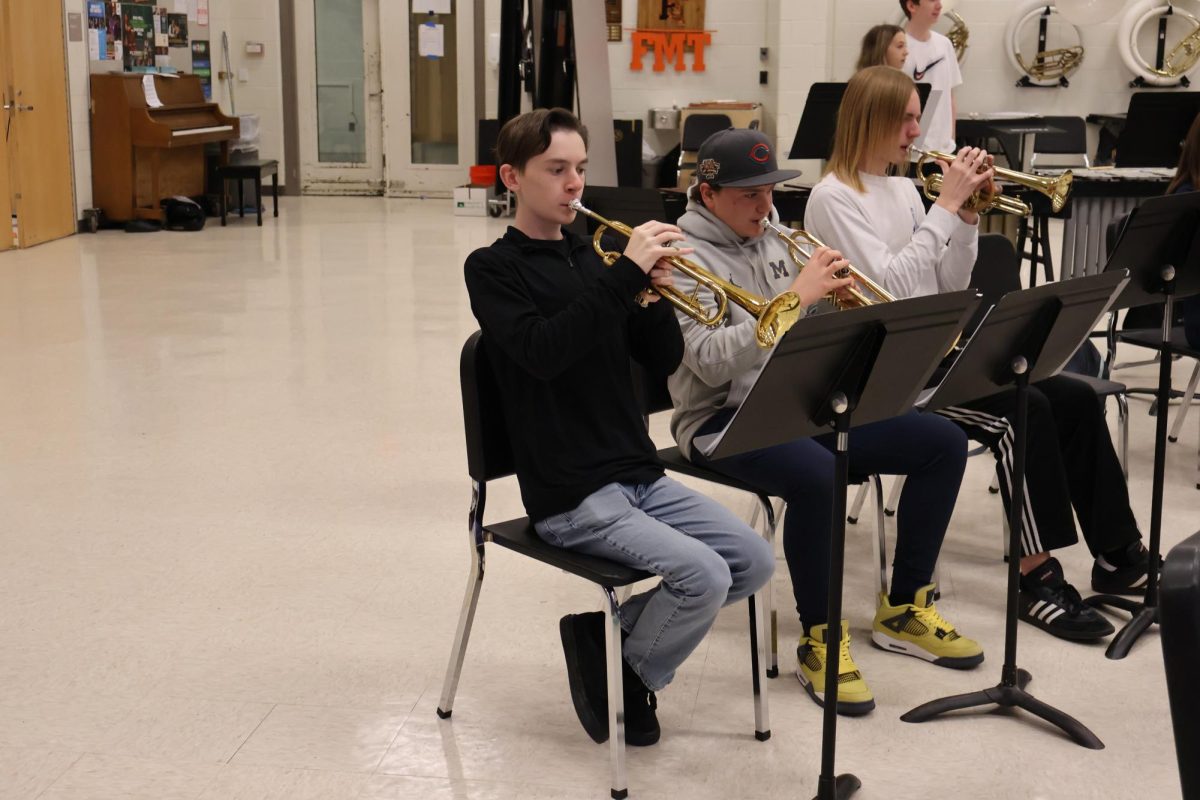Following the deadliest mass shooting in U.S. history, our nation isn’t doing enough to bring awareness to gun violence
November 7, 2017
In the wake of the shooting massacre at the Route 94 Harvest Music Festival in Las Vegas on Oct. 1, American lawmakers are continuing to take a passive stance against gun violence. When prompted about potential legislative action regarding gun control following the deadly situation, Senate Majority Leader Mitch McConnell (R-KY) told reporters on the steps of the U.S. Capitol that it is “far too early, and far too inappropriate, to be trying to politicize a tragic situation like this one.” McConnell does not stand alone in this opinion, with fellow Republican politicians echoing the same message, including members of the Trump Administration. Sarah Huckabee Sanders, White House Press Secretary and mouthpiece of the Executive Branch, also dismissed talks of gun control legislation, citing the brevity of the situation as reason enough to delay conversation, it being “just too soon” to discuss potential policy change.
This attitude itself is dangerous. When people like McConnell or members of the Trump Administration, take a stance of passivity and acquiescence in response to gun violence, it comes with the same prescribed message: we’ll get to it, but not now. I ask then, when? When will we get to it? If not today, then tomorrow? In a week? In a month? There never seems to be a concrete answer from lawmakers, and as such, the conversation is delayed and avoided. However, in the meantime, while our nation’s politicians are waiting for the what will never be the appropriate moment to address this situation, citizen’s lives are at still at risk.
According to the National Vital Statistics System of the Center for Disease Control (CDC), 93 individuals are killed every day in America as a result of gun violence, with tragedy striking at the most unsuspecting moments. The victims in Las Vegas initially expected a night of music and festivities, and the event quickly turned into a bloodbath. At Sandy Hook, parents surely didn’t expect that on that morning, as they sent their children to elementary school, it would be the last time they’d see their faces before a gunman ended their lives. It’s never suspected, and as such our citizens are never prepared.
It is sad how rampant gun violence has become in our society, and it is equally sad how conditioned we have become to it. I would expect that after a mass shooting claimed the lives of 58 Americans, the entire country would be swirling in a storm of outrage and confusion. Instead, I hear next to nothing. The deadliest shooting in U.S. history is nothing more than a blip on our radar, quickly mourned and then quickly forgotten. However, I’m not surprised by this. Gun violence is such a constant in American life that whenever I wake up to the news that some gunman has killed tens of people somewhere in the nation, I feel bad for a day and then move on, hoping my city isn’t the next. I always feel extreme sorrow and empathy for the victims, but never shock; not anymore. It’s hard to not feel this way when, in 2017, the number of mass shootings in the U.S. (284) is nearly equal to the number of days in the year so far (295), according to the National Gun Violence Archive.
Situations like these ones often leave citizens feeling helpless, myself included. The question always posed is “what can be done to prevent this?” in a nation that has a gun homicide rate 25 times greater than the rest of the world, according to a study published in the American Journal of Medicine in 2016. What started with Columbine and now crescendos with Las Vegas has led to significant portions of our lives becoming militarized zones, including the classroom. The new school year brought with it the induction of the ALICE (Alert, Lock down, Inform, Counter, Evacuate) Program in which the administration, in conjunction with the Fenton Police Department, looks to implement a more effective counter-attack policy to potential shooting threats, which includes barricading doors, finding escape routes from the building and, if necessary, attacking the shooter directly. While I applaud the efforts of the district to ensure students’ and faculty’s safety, I find it sad that students and staff must find ways to counter gun violence directly instead of our nation’s legislators attempting to prevent it in the first place.
Gun control is the solution to ending the exorbitant amounts of shootings our nation has become so accustomed to. In Australia, after the Port Arthur Massacre in 1996, the Australian government enacted some of the strictest gun control legislation ever seen, which included the banning of semi-automatic rifles and shotguns. Additionally, the laws installed thorough background checks for gun ownership, including a 28 day waiting period and a requirement to present a “justifiable” reason for needing a gun, which doesn’t include for means of self-protection. Since these laws went into effect 21 years ago, Australia has experienced zero mass shootings. By enacting stricter gun control, like Australia, America could also lower its mass shooting rates. A 2016 study by Lancet Health and Science Medical Research predicted that implementing federal universal background checks could reduce firearm deaths by a projected 56.9 percent, and background checks for ammunition purchases could reduce deaths by a projected 80.7 percent. These results are attainable, and America owes it to its citizens to protect them from gun violence.
America and its Second Amendment have always had a tumultuous relationship, but the time has come to enact effective gun control legislation. When the Second Amendment was put into place, firearms had a magazine capacity of one round, an effective fire rate of three rounds every minute with a maximum accuracy range of 50 meters. Today, the average household firearm has a magazine capacity of nine, an effective fire rate of 20 rounds a minute and an accuracy range of 210 meters. The Second Amendment was not intended for this day and age, and despite the justifications provided, no citizen should have access to munitions capable of ending dozens of lives in a matter of minutes.







